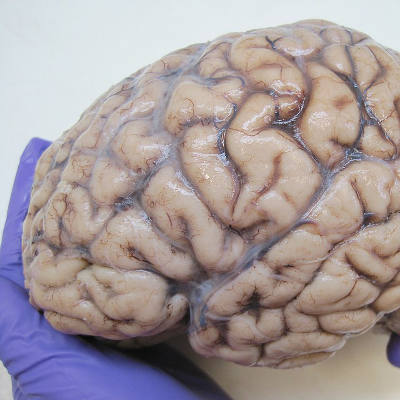Repurposed Alzheimer’s drug could someday help save your life
Aug. 24, 2024.
3 mins. read.
Interactions
Hibernation-like torpor state could save millions of lives every year
Researchers at the Harvard Wyss Institute for Biologically Inspired Engineering have discovered that the FDA-approved donepezil (DNP) drug can put tadpoles in a protective, reversible hibernation-like torpor state.
DNP is already being used in the clinic to treat Alzheimer’s, so it potentially could be rapidly repurposed for use in emergency situations to prevent irreversible organ injury while a person is being transported to a hospital, the researchers suggest.
Could save millions of lives every year
“Cooling a patient’s body down to slow its metabolic processes has long been used in medical settings to reduce injuries and long-term problems from severe conditions, but currently, it can only be done in a well-resourced hospital,” said co-author Michael Super, Ph.D., Director of Immuno-Materials at the Wyss Institute, in a statement.
“Achieving a similar state of biostasis [the ability of an organism to tolerate environmental changes without having to actively adapt to them, such as hibernation] with an easily administered drug like DNP could potentially save millions of lives every year.”
Lipid nanocarriers to reduce toxicity
The team used X. laevis tadpoles to evaluate DNP’s effects on a whole living organism and found that it did successfully induce a torpor-like state that could be reversed when the drug was removed.
But the drug seemed to cause some toxicity, and accumulated in all of the animals’ tissues. To solve that problem, the researchers encapsulated DNP inside lipid nanocarriers, and found that this both reduced toxicity and caused the drug to accumulate in the animals’ brain tissue. This is a promising result, as the central nervous system is known to also mediate hibernation and torpor in other animals.
Although DNP has been shown to protect neurons from metabolic stress in models of Alzheimer’s disease, the team cautions that more work is needed to understand exactly how it leads to torpor, as well as scale up production of the encapsulated DNP for use in larger animals and potentially, humans.
“Donepezil has been used worldwide by patients for decades, so its properties and manufacturing methods are well-established. Lipid nanocarriers similar to the ones we used are also now approved for clinical use in other applications,” said senior author Donald Ingber, Founding Director of the Wyss Institute for Biologically Inspired Engineering, in a statement.
Buying patients critical time
“This study demonstrates that an encapsulated version of the drug could potentially be used in the future to buy patients critical time to survive devastating injuries and diseases, and it could be easily formulated and produced at scale on a much shorter time scale than a new drug,” Ingber said.
This research, published August 22 in ACS Nano, was supported as part of the DARPA Biostasis Program, which funds projects that aim to extend the time for lifesaving medical treatment (the “Golden Hour” following traumatic injury or acute infection). The Wyss Institute has been a participant in the DARPA Biostasis Program since 2018 and has achieved several important milestones over the last few years.
Citation: Plaza Oliver M et al. Donepezil Nanoemulsion Induces a Torpor-like State with Reduced Toxicity in Nonhibernating Xenopus laevis Tadpoles. ACS Nano. 2024 Aug 21. https://pubmed.ncbi.nlm.nih.gov/39167921/ (open-access)
Thumbnail image credit: A. Angelica/ChatGPT
Let us know your thoughts! Sign up for a Mindplex account now, join our Telegram, or follow us on Twitter.


.png)

.png)


.png)





0 Comments
0 thoughts on “Repurposed Alzheimer’s drug could someday help save your life”